The Vision Sciences Society is committed to progress in understanding vision and its relation to cognition, action and the brain. Our primary goal is to host a yearly meeting where both new and established investigators can present and discuss their work.
This year, the Vision Sciences Society’s annual meeting will be held in-person, May 13-18, 2022. Information about exhibiting and sponsoring will be available soon.
2021 Davida Teller Award – Marisa Carrasco
The Vision Sciences Society is honored to present Dr. Marisa Carrasco with the 2021 Davida Teller Award
VSS established the Davida Teller Award in 2013. Davida was an exceptional scientist, mentor and colleague, who for many years led the field of visual development. The award is therefore given to an outstanding female vision scientist in recognition of her exceptional, lasting contributions to the field of vision science.
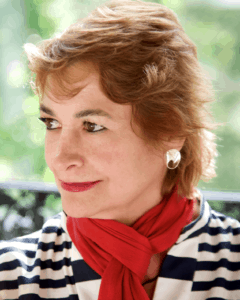 Marisa Carrasco
Marisa Carrasco
Julius Silver Professor of Psychology and Neural Science, New York University
Marisa Carrasco investigates visual perception and attention, using human psychophysics, neuroimaging, neurostimulation, and computational modeling in order to study the relation between the psychological and neural mechanisms involved in these processes. Her research has revealed how attention modulates perceptual performance and alters appearance in a variety of visual tasks. Marisa grew up in Mexico City and earned her Licentiate in Psychology, specializing in experimental psychology, from the National Autonomous University of Mexico (UNAM), where she graduated summa cum laude. Marisa then obtained her MS and PhD in psychology, specializing in cognition and perception, from Princeton University, where she received the highest scholarly excellence award, the Jacobus Honorific Fellowship. She became an Assistant Professor of Psychology at Wesleyan University in 1989. While at Wesleyan Dr. Carrasco received an NSF Young Investigator Award and an American Association of University Women Fellowship. She joined NYU in 1995 as an Associate Professor and was promoted to Professor of Psychology and Neural Science in 2002. She served as chair of the NYU Psychology Department from 2001-2007. NIH and NSF have continuously supported Carrasco’s research at NYU. Professor Carrasco received a Guggenheim Fellowship and a Cattell Fellowship and was named a fellow of the American Psychological Society and has been elected to the National Academy of Sciences (2021); at NYU, she has been Collegiate Professor since 2007 and was named Julius Silver Professor of Psychology and Neural Science in 2019. Among her many other contributions to the vision sciences community, Marisa Carrasco has served as president of both the Vision Sciences Society and the Association for the Scientific Study of Consciousness and as a senior editor of two scientific journals, Journal of Vision and Vision Research.
Marisa Carrasco has had a profound impact on the field of vision science and attention through her multi-disciplinary research and through her mentorship activity. She is well-known as a dedicated teacher and mentor of undergraduate students, graduate students and post-doctoral fellows. This is in part evidenced by her receipt of the NYU award for excellence in postdoc mentoring in 2018.
Marisa forged her research career in an era when the field of vision science had few women. Through her efforts she not only advanced her own research; she has also been an invaluable and generous role model for the many students she has taught and mentored through the years. With this award, VSS recognizes Professor Marisa Carrasco’s outstanding research and thanks her for being a wonderful scientist, mentor, and colleague.
Dr. Carrasco will speak during the Awards session,
Sunday, May 23, 2021, 2:30 – 3:30 pm EDT.
2021 Call for Applications for Student-Postdoc Advisory Committee
Applications Are Now Open for the VSS Student-Postdoctoral Advisory Committee (SPC)
The Vision Sciences Society welcomes applications for three vacancies on the VSS Student-Postdoctoral Advisory Committee. Successful applicants will join the three continuing members of the current VSS Student-Postdoctoral Advisory Committee (SPC).
The mandate of the SPC is to share ideas and proposals about how VSS events, workshops, meeting structure and activities can best meet the needs of trainee members and early career researchers. The SPC participates in the design and operation of VSS events and workshops that are relevant to the needs and interests of early career researchers. Serving on the SPC, as well as facilitating or leading any resulting activities, are also useful professional experiences for the engaged trainees.
In the past year, SPC members contributed to the design and operation of conference events, including for the upcoming V-VSS 2021. They provided valuable advice and perspectives to the VSS Board about aspects of the conference and the organization that are relevant to trainees and early career researchers. Members of the SPC meet both independently and with VSS Board members several times per year. See Student Postdoc Events for descriptions of the events led by SPC at V-VSS 2020.
Membership is for a period of one year, beginning on the first day of the Annual Meeting, with the opportunity for appointment to a second year.
VSS wants to send its appreciation to the current Committee for their outstanding service in 2020/2021: Stacey Aston, Kathryn Bonnen, Matthew Boring, Cristina Ceja, Björn Jörges, and J. Brendan Ritchie (see Student Postdoc Advisory Committee)
VSS welcomes and actively seeks applications from students and postdoctoral members whose research spans the range of areas represented in the organization, and who reflect the global diversity and aspirations of the VSS membership.
Application Procedure
Those interested in becoming members of the VSS Student-Postdoctoral Advisory Committee should send the following information in a single PDF file:
- A one-page personal statement. This statement should summarize your reasons for wanting to serve on the SPC, any prior experience, or any aspects of your background that you feel is relevant to serving on the SPC;
- List of previous VSS conferences attended;
- Statement of intention to attend the VSS conference in 2021 and 2022 as a student/postdoc VSS member, as well as a statement that the applicant expects to retain status as either a student or postdoc for the 12 months following the 2021 conference;
- Names and contact information of two individuals who could provide letters of support for the nomination; and
- Current CV, including current affiliation and contact information.
Application materials should be emailed to by Friday, March 12th.
Those who applied to the SPC last year are encouraged to resubmit this year if you are still a student or postdoctoral VSS member.
Applications Accepted: February 16, 2021
Applications Close: March 12, 2021
Committee Announced: April 15, 2021
Tutorials
Session Builder
This 9-minute video demonstrates how to use the Session Builder in MeetingTrakr to create sessions and assign abstracts to a session.
Note: This video was made in 2021. Some things have changed in MeetingTrakr since this was recorded.
- The Timezone filter has been removed from the Session Builder page (minute 3:00) as this was a feature used for building V-VSS sessions.
- Abstracts can now be bulk added, removed, and transferred by selecting checkboxes to select multiple abstracts (minute 3:30).
- The Add button has been replaced with a plus sign (+) icon (minute 6:27).
- To reorder abstracts in a session, use the Reorder Presentations link (minute 6:40).
- When building a Talk Session, the Preferences filter will not let you view Poster Only abstracts to add to the Talk Session.
V-VSS 2021 Graphics Competition
VSS is seeking creative visual images to be used as the banner image of the Vision Sciences Society website and the V-VSS 2021 meeting website. Images should be related to the field of vision science, the Vision Sciences Society, or the Virtual VSS annual meeting.
Because this year’s meeting is a virtual event, the 2021 graphic competition is different than in past years. Instead of two separate graphic competitions (the T-Shirt Design Competition and the Program Cover Competition), there is a single Website Banner Competition.
The winner of the competition will receive $500 USD, an image credit on the website, and recognition in the digital meeting program.
The winning image will be chosen by a vote of the VSS Board of Directors at their January meeting. The winner will be announced before the end of February.
The winner grants VSS unlimited rights to copy, publish, edit, print, and use the winning image for any purpose, including publishing images online, and on other electronic and hard-copy media.
Entering the Competition
To enter the graphics competition, submit an image for the Home Page Banner as defined below. If your image wins the competition, you will be asked to create variations of your image for other purposes (see Additional Images).
Home Page Banner – This image will appear on the home page of the VSS website, replacing the current image. The image width must be 1450 pixels. The image height must be between 200 and 300 pixels.
Your banner image must contain at least the year and name of the meeting (eg: V-VSS 2021, Virtual VSS 2021) and the dates of the meeting (May 21-26). The image can optionally contain the VSS logo or other text appropriate to the meeting.
All images must be submitted in PNG format.
Submitting Your Image
Email your image as an attachment. You may submit more than one image for consideration. One email per submission please. In your email you may optionally include a brief description of your image that the board will consider when reviewing the submitted images.
You must be a current VSS member to participate in the Graphics Competition.
All images must be received by end of day Friday, January 15, 2021.
Additional Images
If your image is chosen by the VSS board as the winner of the competition, you will be asked to create additional variations of your image as described below. You do not have to create these images to enter the competition, but you might consider what these images will look like when creating your submitted image.
Secondary Page Banner – This smaller banner image will appear on all secondary pages of the VSS website. The image width must be 1450 pixels. The image height must be between 50 and 100 pixels. The Secondary Page Banner can be a cropped or resized version of the Home Page Banner or a different complementary image.
V-VSS Meeting Website – The V-VSS meeting website is a separate website from the VSS website. Banner images are needed for the home and secondary pages. We expect these to be cropped/resized versions of the VSS website banners. The image dimensions are: Home Page Banner, 900px wide by 200px high; Secondary Page Banner, 900px wide by 100px high.
PowerPoint Slides – A PowerPoint slide template will be needed for Zoom presentations. Specifications to be determined.
Submissions Open: December 2, 2020
Submissions Close: January 15, 2021
2021 Public Lecture – Roland Fleming
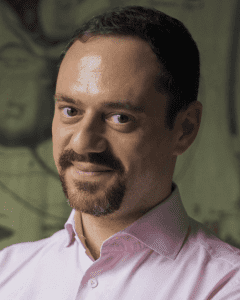 Roland Fleming, PhD
Roland Fleming, PhD
Justus Liebig University Giessen, Germany
Roland Fleming is an interdisciplinary researcher who investigates how the brain allows us to see the physical properties of objects. He studied at Oxford and MIT and has worked at the Max Planck Institute for Biological Cybernetics. He is currently the Kurt Koffka Professor of Experimental Psychology at the University of Giessen in Germany. He has won a number of prizes, including the Elsevier-Vision Sciences Society Young Investigator Award in 2013.
Big Data and the Brain: How we Learn to See ‘Stuff’ from Lots and Lots of Examples
How does the brain learn to see? When we are newborn, we can hardly recognize anything by sight, yet by the time we are adults we have exquisite visual and motor skills. Without touching objects we can make an incredible range of visual judgments about their properties. We can see an object’s 3D shape, work out whether it is soft or hard, fragile or durable, and anticipate how it is likely to respond if we try to squeeze it. Somehow, by looking at and interacting with lots of ’Stuff’, we learn how to recognize it. In this talk, vision scientist Roland Fleming will discuss some of the challenges that objects and materials pose to the visual system, and describe some of the amazing progress researchers have recently made in using deep learning to build artificial visual systems that can see like humans.
About the VSS Public Lecture
The annual public lecture represents the mission and commitment of the Vision Sciences Society to promote progress in understanding vision and its relation to cognition, action and the brain. As scientists we are obliged to communicate the results of our work, not only to our professional colleagues, but also to the broader public. This lecture is part of our effort to give back to the community that supports us.
Register here
Dr. Fleming will deliver the public lecture on Tuesday, May 25, 2021, 12:00 pm EDT.
2021 Keynote – Suzana Herculano-Houzel
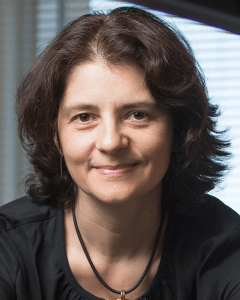 Suzana Herculano-Houzel
Suzana Herculano-Houzel
Associate Professor of Psychology and
Associate Director for Communications, Vanderbilt Brain Institute
Suzana Herculano-Houzel, Ph.D., is a biologist and neuroscientist at Vanderbilt University, where she is Associate Professor in the Departments of Psychology and Biological Sciences. Her research focuses on what different brains are made of; what that matters in terms of cognition, energy cost, and longevity; and how the human brain is remarkable, but not special, in its makeup. She is the author of The Human Advantage (MIT Press, 2016), in which she tells the story of her discoveries on how many neurons different species have—and how the number of neurons in the cerebral cortex of humans is the largest of them all, thanks to the calories amassed with a very early technology developed by our ancestors: cooking. She spoke at TEDGlobal 2013 and TEDxNashville 2018 and is an avid communicator of science to the general public.
To learn more about Professor Herculano-Houzel and her research, please visit her website.
Whatever works: Celebrating diversity in brain scaling and evolution
Saturday, May 22, 2021, 1:00 pm EDT
Animals come in many sizes and shapes, and one would be hard-pressed to say that any one is better than the other, because all of them have passed the test of evolution: they’re here, so they have obviously been good enough. Still, what weighs on the trade-off scale when animals and their brains vary in size? What can be said about scaling of the visual system, in particular? What does it cost to have more neurons? Is it even necessary for larger animals to have more neurons? This talk will tackle the old topic of scaling in a new light that celebrates diversity, rather than assume that biology is improved through natural selection.
2020-2021 Student-Postdoc Advisory Committee
The Vision Sciences Society announces the 2020-2021 inaugural members of The Student-Postdoc Advisory Committee (SPC)!
The Student-Postdoc Advisory Committee will advise the VSS Board and membership about how events, workshops, meeting structure, and activities can best target the needs of trainee members and attendees. They will be reaching out to trainees to solicit opinions and ideas, as well as organizing special events.
Each year VSS will solicit nominations for new members of the Student-Postdoc Advisory Committee to replace three members who will be rolling off the Committee.
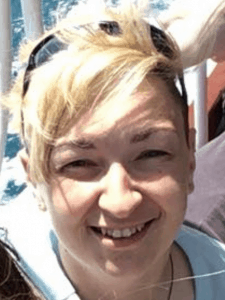 Stacey Aston
Stacey Aston
Durham University
Stacey Aston is a postdoctoral researcher in Durham University’s Psychology Department. In her research, she studies visual and multi-sensory information integration for human perception and decision making. Stacey joined SPC to have a positive impact on the VSS experience for student and postdoc members. She is sure that the newly formed SPC committee will be a valuable asset to the VSS team as they work to enrich the VSS program with many more development and networking opportunities.
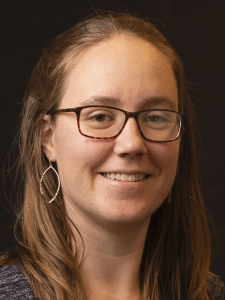 Kathryn Bonnen (Chair)
Kathryn Bonnen (Chair)
New York University
Kathryn (Kate) Bonnen is a Simons Society postdoctoral fellow at New York University (NYU). She earned her bachelor’s degrees in computer science and psychology at Michigan State University and received a Ph.D. in neuroscience from the University of Texas at Austin. Prior to NYU, she was an ARVO/VSS scholar and visiting researcher in the Optometry School at the University California Berkeley. Her research focuses on motion perception, behavioral modelling, binocular processing, and sensorimotor control.
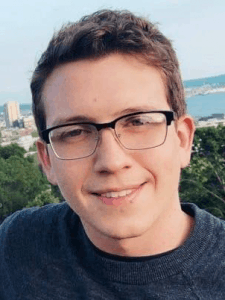 Matthew Boring (Record Keeper)
Matthew Boring (Record Keeper)
University of Pittsburgh
Matthew Boring is a fourth year PhD student from the University of Pittsburgh. He studies in Dr. Avniel Ghuman’s Laboratory of Cognitive Neurodynamics to understand how visual representations of objects evolve in the ventral stream and how these representations influence visual attention. Within the Student Postdoc Advisory Committee, Matthew is excited to improve VSS for trainees by establishing channels of communication between students, postdocs, and VSS organizing committees. By better understanding the desires and concerns of trainee members, it will be easier to develop programs that improve the value of VSS to them.
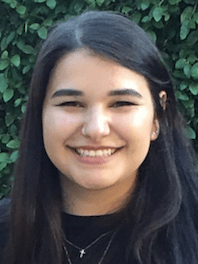 Cristina Ceja
Cristina Ceja
Northwestern University
Cristina Ceja is a graduate student at Northwestern University pursuing a PhD in Psychology. She is interested in exploring the limits of our visual system in perceiving, processing, and updating visual representations. Currently, she studies how the visual system binds features to objects, and the role of visual attention in this binding process. As a member of the Student-Postdoc Advisory Committee (SPC), she looks forward to building on her existing outreach efforts and committee work dedicated to engaging and advocating for trainees.
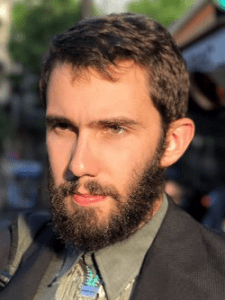 Björn Jörges
Björn Jörges
York University
Björn finished his PhD at University of Barcelona and is currently doing a PostDoc at York University, Toronto, in a project funded by the Canadian Space Agency. His research is focused on the role of vestibular cues for visual perception and how we perceive moving objects while we ourselves are moving through the environment. He is furthermore convinced that open and diverse science is better science.
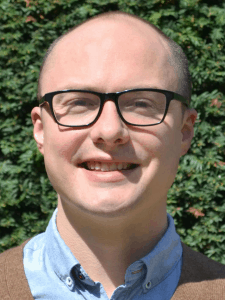 J. Brendan Ritchie (VSS Liaison)
J. Brendan Ritchie (VSS Liaison)
National Institute of Mental Health
J. Brendan Ritchie, Ph.D, is a post-doctoral fellow in the Laboratory of Brain and Cognition at the National Institute of Mental Health (USA), where he is conducting research on the neural basis of visual categorization and category learning. Previously he was a post-doctoral fellow at KU Leuven (Belgium), a research associate at Macquarie University (Australia), and a graduate student at the University of Maryland (USA), where he obtained his doctoral degree. Brendan is excited to be a part of SPC, and wants to help make VSS more responsive to the interests of early career researchers in vision science.
General Information
VSS 2021 Goes Virtual!
We are excited to announce that the 2021 Vision Sciences Society (VSS) meeting will be held virtually May 21-26, 2021. Building on the experience gained from V-VSS 2020, the VSS Board and staff are confident that V-VSS 2021 will meet our society’s goal of communicating high-quality vision science in a collaborative and collegial environment. We are also dedicated to providing events that facilitate interaction and to generating networking opportunities for members at all career stages. VSS appreciates your patience as we finalize planning.
We will provide additional details, including dates and deadlines, soon.
This announcement follows careful consideration of the continued spread of COVID-19 (Coronavirus). The VSS Board of Directors decided that the ongoing health concerns relating to the Coronavirus, travel and other restrictions, and compliance with public health guidelines, render it impracticable for VSS 2021 to proceed in person, and that the safest approach is to provide a virtual experience. We urge those who were planning to attend VSS 2021 in person to expedite flight and hotel cancellations.
Thank you and be well!
All my best,
Laurie Wilcox
VSS President
